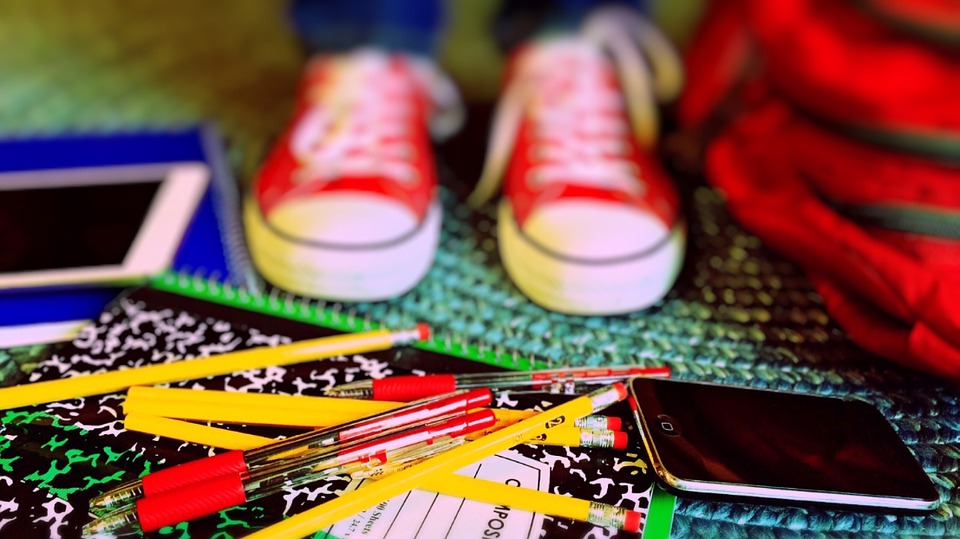Next month marks the beginning of the new school year for most Maryland students, with some students starting as early as the end of August. It isn’t easy for anyone to transition back to school following the lazy days of summer. For some students, however, the arrival of the new school year brings more than just a longing for additional summertime. Feeling nervous before the start of school is common among kids of all ages and backgrounds, but students with anxiety tend to find the new school year particularly difficult.
This is especially true if your student will be attending a new school, such as the move from middle to high school, or entering school for the first time. Children who struggle with anxiety might worry about being in a classroom without their usual friends, having a new teacher, or many other possible fears.
Is It Just Back-to-School Nerves — Or, Something More?
It’s important to recognize the difference between clinical anxiety and typical, expected nervousness. Nervousness, first and foremost, usually goes away once the child adjusts to the new environment and routine. Anxiety persists and can even worsen as time goes on. Children with anxiety tend to complain about physical symptoms, like headaches or stomach aches, particularly at the start of the school day. They often behave in ways that seem over-the-top compared to other students their age. For example, it isn’t at all uncommon for young children to cry for their parents on their first day of preschool or Kindergarten. A child who cries all day for days on end, however, is less common. Mood swings here and there in teenagers are par for the course, but severe moodiness may be more concerning. When you start noticing extremes of any kind in your child’s behavior, it might be time to consider reaching out to a children’s mental health professional for guidance.
If you know that the school year is typically a difficult time for your anxious child, here are a few tips to help ease them into the new year:
Start the Bedtime Routine Early
Don’t wait until the night before the first day of school to enforce a proper sleep schedule. Instead, prepare your child for the first day weeks in advance by setting the same bedtime schedule that will be used while school is in session. Sleep is essential for all children to thrive and focus in school, but children with anxiety especially tend to be more sensitive to bodily changes like a lack of sleep. A good night’s sleep is just one tool in the toolbox that can help to keep anxious feelings down.(1)
Rehearse the School Experience
Anxious children will feel more in control when they’ve toured their new schools, visited their new classrooms, practiced their locker combinations, or already met their new teachers. If at all possible, try to attend any pre-registration or related event that will allow your child to get to know the school before the first day.
Another helpful idea is to have your child try visualization exercises. Have them imagine the first day of school. What is the worst thing they think could happen? How do they imagine handling it? Visualization is incredibly empowering and can help your child feel confident in their ability to handle the situations that scare them.
Seek Out Resources
Books can be a great resource for a child, especially younger children. Reading a book like The Night Before Kindergarten to an anxious kindergartener, for example, is yet another way to help them prepare. For older children, books about preparing for middle or high school can help them feel less alone and further increase their confidence. You might even come across positive television episodes that relate to your child’s concerns. Daniel Tiger’s Neighborhood is one TV series, in particular, that is known for its focus on social-emotional growth in children.
If your child is worried about bullying or safety concerns, speak openly with them about their fears. If necessary, talk with the school principal or guidance counselor to come up with a plan to help your child feel comfortable at school.
Don’t Dismiss Your Child’s Fears
Let your child take the lead from you. Show your child that you are calm and that you understand, even if preschool tantrums or unending “what if?” questions from your older child are getting the best of you. Children easily feed off of parent emotions. Try to remember that no matter how small a child’s fear may seem to you now, it probably mattered a great deal to you when you were that age, too. Never dismiss your child’s fears. Instead, listen and even ask questions about their worries. Just talking about fears can help children to feel less afraid.
For younger kids who have a lot of worries, try buying them a “worry eater.” A worry eater is a little fabric monster that you can find for sale online. Help your child to write down their worries and feed them to the monster by zipping worry notes up inside of its belly. The act of writing down fears is another proven way to help alleviate anxiety.(2) Older children may benefit from journaling or list making.
Provide Quality Nutrition and Encourage Physical Activity
Along with sleep, good nutrition and regular daily activity can make a difference for both your child’s school productivity and for your child’s anxiety. When blood sugar levels are unstable, some students are more likely to experience anxiety attacks.(3) For younger children, pack well-balanced lunches rich with healthy fruits and vegetables. For older students, encourage them not to skip meals or forgo the vegetables in favor of something less healthy.
Your student doesn’t have to be an athlete to participate in physical activity. Daily walks after school before starting homework can help your child wind down from the school day and dramatically ease anxiety symptoms.(4) In fact, several studies have shown that exercise may work as well as medication in relieving symptoms of anxiety. (Of course, your child should still continue to take any medication that has been prescribed to them by a health care professional unless told otherwise.)
Share Your Pride with Your Child
At the end of that first school day, express to your child how proud you are of how they handled the day. Older children will appreciate verbal praise, while younger children might enjoy “lunchbox notes” or other tangibles. Continue praising your child throughout the school year as you notice your student overcome anxious feelings to engage in school activities(5) At the same time, while setting reasonable expectations is important, try not to let your child feel pressured to be the best at everything in school. Making mistakes and learning from them is an important part of growth. Too much pressure can make a child who is prone to anxiety have even more difficulty managing the condition.(6)
Watching your child struggle with anxiety isn’t easy for any parent, but with your patience, understanding, and guidance your child can thrive in the school setting. If you feel that your child’s anxiety is the result of a deeper problem, like a learning disability or attention disorder, contact Neurobehavioral Associates for a comprehensive assessment. We also have an extensive network of referrals to help your child receive the right services to ensure success in and out of the classroom.
Resources:
- Scicurious. (2013, July 15). When feeling anxious, it really does help to get more sleep. Retrieved from https://blogs.scientificamerican.com/scicurious-brain/when-feeling-anxious-it-really-does-help-to-get-more-sleep/
- Harvard Health Publishing. Writing about emotions may ease stress and trauma. Retrieved from https://www.health.harvard.edu/healthbeat/writing-about-emotions-may-ease-stress-and-trauma
- Aucoin, M., & Bhardwaj, S. (2016). Generalized Anxiety Disorder and Hypoglycemia Symptoms Improved with Diet Modification. Retrieved from https://www.ncbi.nlm.nih.gov/pmc/articles/PMC4963565/
- Exercise for Stress and Anxiety. Retrieved from https://adaa.org/living-with-anxiety/managing-anxiety/exercise-stress-and-anxiety
- Burch, J. M. (2018, August 23). Back to school anxiety. Retrieved from https://www.health.harvard.edu/blog/back-to-school-anxiety-2018082314617
- Sharf, S. (2016, August 26). Childhood Anxiety From Pressure At School. Retrieved from https://www.anxiety.org/childhood-anxiety-from-academic-pressure-are-we-pushin






